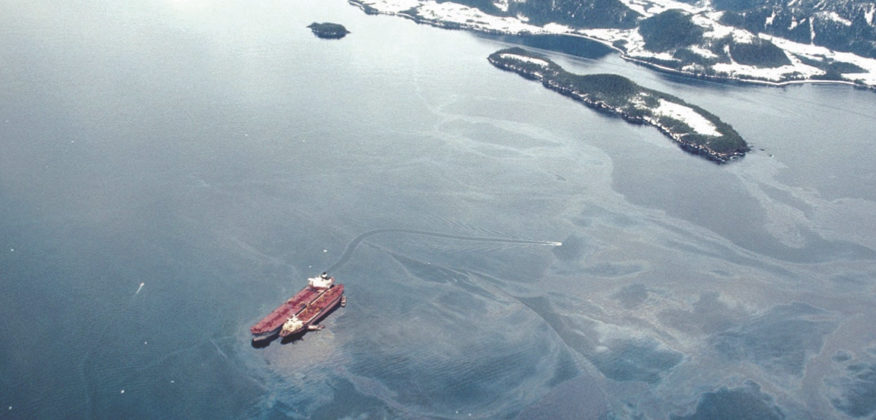Looking back at how the court system failed fishermen after the Exxon Valdez oil spill.
The risk-reward calculation is something we all consider from time to time. Commercial fishermen probably think about it more than most. How bad will the weather be? Maybe I should I invest in a new, bigger boat. Can I get another season out of the old engine, or should I borrow money and repower now?

This story was first published in the 2019 edition of Pilothouse guide. Subscribe today for digital and print access.
Most risks can be mitigated. From preventative maintenance to PFDs to insurance, a variety of tools help minimize some hazards and soften the landing when things go wrong. Managing risk requires thinking ahead, planning what to do and having the wherewithal to follow through.
In the mid-1970s, when tankers started packing crude oil across Alaska’s Prince William Sound from the recently built pipeline terminal in Valdez, they only ran laden during the daytime because it was safer. They also crossed the sound at reduced speeds until getting through Hitchinbrook Entrance and out into the ocean.
As volume from the North Slope grew, tanker operations ramped up and sped up. By March 1989, loaded tankers had made more than 8,800 successful transits through the sound, all unescorted beyond the Valdez Narrows. The oil industry’s concerns about the hazards that slowed those early trips no longer seemed so worrisome.
Then, in March of 1989, the Exxon Valdez showed just how risky transporting all that oil really was. In what the National Transportation Safety Board described as a “combination of bad seamanship, bad judgment, bad management and bad luck,” the 987' x 166' tanker jammed its port side into and onto the granite rocks of Bligh Reef, a well-known hazard not far from Valdez. Instantly the risks had overtaken the rewards in a huge, ugly way. The boulders of Bligh Reef ripped open the single-hull tanker, and gooey, toxic crude gushed out. Of the 53 million gallons onboard, at least 11 million and as much as 38 million gallons ended up in the water, in the air and on the beaches of Prince William Sound and South Central Alaska. The environmental damage was epic. The economic damages were catastrophic.
In Cordova, home of the Prince William Sound fishing fleet, the damage was also deeply personal. Stresses from the accident’s aftermath frayed marriages, friendships and business partnerships. Patience Anderson Faulkner, a Cordova paralegal who helped hundreds of fishermen file claims for restitution, said mental health was a serious problem in Cordova.
“People would come into our office to have a cup of coffee and talk about what happened while we worked on their claims. One guy told me that he was so depressed that he had been wondering whether to just kill himself or to also kill his wife at the same time,” Faulkner said. “Fortunately, he got some help and didn’t do either.”
But the stress took its toll for a prominent member of the Cordova community. Bobby Van Brocklin, who had been elected mayor after the spill in 1989, took his own life in 1993. He reportedly left a note implicating the stress of “Exxon.”
To read the full article, subscribe to National Fisherman today for digital and print access.







